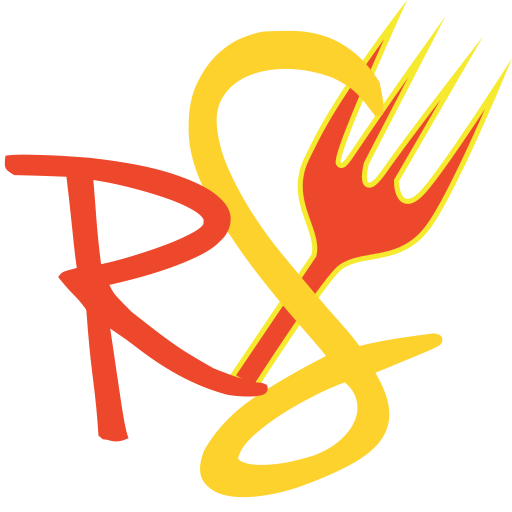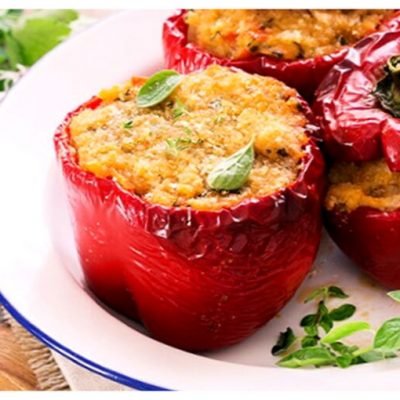Ingredients
-
2 Di webu
-
2 tablespoons Extra Virgin Olive Oil
-
2 tablespoons Sugar
-
2 tablespoons Anise Liqueur
-
1 Grated Lemon Peel
-
Q.s. 00 Flour
-
Directions
Easter donuts are typical sweets of the Marche culinary tradition prepared for the Easter period. Related to Italian popular cuisine, it is said that the peasant women of the Marche countryside, the Vergare, used to knead these donuts on Good Friday, and then cook them in wood-fired ovens on Easter Sunday. Although they are made with just a few ingredients, they need a process that requires a long rest period between cooking. These desserts remain good and fragrant for several days and can be enjoyed natural or stuffed with lemon icing, real ice or melted chocolate. To finish, garnish with colored sugars, chopped hazelnuts or codettes
Steps
|
1
Done
|
In a bowl, break the eggs, add the sugar, the oil, the grated lemon, then a little at a time the flour until the dough is firm, not too soft or too hard. Put the mistrà when it has already begun to knead the flour, because the alcohol could "cook" the eggs. |
|
2
Done
|
Knead the dough for a few minutes then divide the dough into a donut shape. |
|
3
Done
8
|
Boil the donuts in a pan of boiling water for at least 8 minutes and let them turn on both sides. |
|
4
Done
|
Gently, using a slotted spoon, remove them from the water and drain them on a dish cloth. |
|
5
Done
|
When they are dry, incise them laterally along the entire circumference. |
|
6
Done
40
|
Bake in the oven for 40 minutes at 180 ° C. In the oven they will have to rise, take on their characteristic shape and a warm cookie color. |
|
7
Done
|
At this point they can be left so natural but the children prefer them covered with white flakes (see the recipe for Easter sweet pizza) i, today, garnished with colored sugars that make them more cheerful and sweeter. |

 English
English Afrikaans
Afrikaans Shqip
Shqip አማርኛ
አማርኛ العربية
العربية Հայերեն
Հայերեն azərbaycan dili
azərbaycan dili Euskara
Euskara башҡорт теле
башҡорт теле Беларуская
Беларуская বাংলা
বাংলা bosanski jezik
bosanski jezik Български
Български မြန်မာစာ
မြန်မာစာ Català
Català 粤语
粤语 Binisaya
Binisaya Chinyanja
Chinyanja 中文(简体)
中文(简体) 中文(漢字)
中文(漢字) Corsu
Corsu Hrvatski
Hrvatski Čeština
Čeština Dansk
Dansk Nederlands
Nederlands Esperanto
Esperanto Eesti keel
Eesti keel vosa Vakaviti
vosa Vakaviti Suomi
Suomi Galego
Galego ქართული
ქართული Deutsch
Deutsch Ελληνικά
Ελληνικά ગુજરાતી
ગુજરાતી Kreyòl ayisyen
Kreyòl ayisyen Harshen Hausa
Harshen Hausa ʻŌlelo Hawaiʻi
ʻŌlelo Hawaiʻi Hmoob
Hmoob עברית
עברית Мары йӹлмӹ
Мары йӹлмӹ Magyar
Magyar Íslenska
Íslenska Bahasa Indonesia
Bahasa Indonesia Gaeilge
Gaeilge Italiano
Italiano 日本語
日本語 Қазақ тілі
Қазақ тілі ភាសាខ្មែរ
ភាសាខ្មែរ кыргыз тили
кыргыз тили 한국어
한국어 Kurdî
Kurdî Latīna
Latīna Latviešu valoda
Latviešu valoda Lietuvių kalba
Lietuvių kalba Lëtzebuergesch
Lëtzebuergesch македонски јазик
македонски јазик Malagasy fiteny
Malagasy fiteny Bahasa Melayu
Bahasa Melayu Malti
Malti Te Reo Māori
Te Reo Māori Монгол
Монгол नेपाली
नेपाली Norsk
Norsk Querétaro Otomi
Querétaro Otomi Papiamentu
Papiamentu پارسی
پارسی Polski
Polski Português
Português ਪੰਜਾਬੀ
ਪੰਜਾਬੀ Română
Română gagana fa'a Samoa
gagana fa'a Samoa Gàidhlig
Gàidhlig Cрпски језик
Cрпски језик Sesotho
Sesotho chiShona
chiShona සිංහල
සිංහල Slovenčina
Slovenčina Slovenščina
Slovenščina Af-Soomaali
Af-Soomaali Español
Español Kiswahili
Kiswahili Svenska
Svenska Reo Mā`ohi'
Reo Mā`ohi' Тоҷикӣ
Тоҷикӣ татарча
татарча ภาษาไทย
ภาษาไทย faka Tonga
faka Tonga Українська
Українська Oʻzbek tili
Oʻzbek tili Tiếng Việt
Tiếng Việt Cymraeg
Cymraeg ייִדיש
ייִדיש









